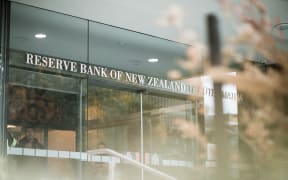Inflation has hit a 10-year high adding pressure on the Reserve Bank to start raising interest rates sooner.
Rising housing costs, food, fuel and car prices pushed the consumer price index 1.3 percent higher in the three months ended June.
But the annual inflation rate surged to 3.3 percent from 1.5 percent in March. It is the highest annual rate since late 2011.
Stats NZ cautioned that part of the annual increase was because it was measured against the June 2020 quarter, when the Covid-19 lockdowns caused some prices to fall.
The biggest driver of the rises was the cost of building a new house, with prices rising 4.6 percent for the quarter and 7.4 percent over the year.
"Higher prices for building houses reflect both supply-chain problems and high demand," Stats NZ prices senior manager Aaron Beck said.
"Several construction firms have told us that it is hard to get many of the materials they need to build a house, and that there are higher labour and administration costs."
Transport costs, which include petrol, used vehicles, and airfares were also a major cause for the inflation surge.
The overall inflation pressures were in line with analysts' expectations, although a touch below the Reserve Bank's pick.
Inflation exceeds forecasts
The inflation numbers were well above economists' and the Reserve Bank's forecasts.
Inflation is now through the top of the Reserve Bank's 1-3 percent target band, but it said earlier this week that it regarded much of the inflation pressures to be caused by temporary factors such as supply chain disruptions, which will gradually ease.
Kiwibank chief economist Jarrod Kerr said the numbers proved economic conditions have changed, and the RBNZ could not keep relying on the view that inflation was largely temporary.
"For the RBNZ, these transitory factors could easily turn into permanent inflation in the current atypical environment.
"We are in a different pricing environment, one where businesses are much more willing and able to pass on higher prices," Kerr said.
He expected the first rise in the official cash rate in August, followed by further rises in November and February next year, taking the OCR to 1 percent.
"An earlier lift off from the RBNZ will hopefully mean less work will need to be done to restrain the economy in the future," Kerr said.
The New Zealand dollar gained against most major currencies, while short term wholesale interest rates also rose to touch pre-pandemic levels.




